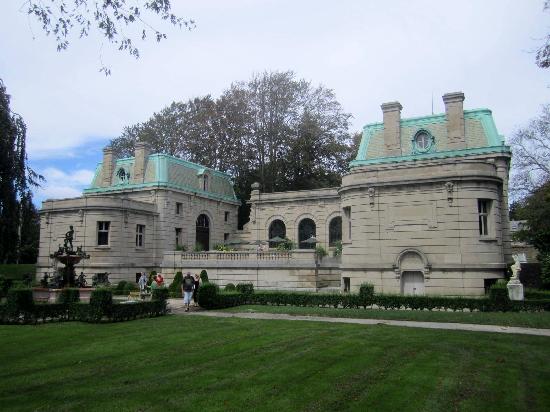A Practical Guide to Land Use Law in Rhode Island was just published this summer…

The Taylor Swift Tax is Not Too Swift
Even excellent leaders make their share of mistakes.
Amidst Governor Raimondo’s impressive first months in office, where she has taken dead aim on economic development and job creation, she has had one clunker of an idea.
That is proposed legislation known as the “Taylor Swift tax”, named after the popular singer who bought a Watch Hill mansion for $17 million. It is an additional tax on real estate valued at over $1 million and owned by someone living less than 6 months a year in Rhode Island.
It is patterned after legislation originally enacted in 1984 to punish absentee owners who either abandon their properties or allow them to become derelict. That legislation properly cited the problems caused by such abandonment and lack of financial responsibility, asserting these owners placed more demand on police and fire services, without paying their “fair share”, left properties derelict to profit from rising prices, and “must be encouraged to use the properties in a positive manner”.
Unbelievably, the Taylor Swift legislation uses the same rationale to tax millionaires who, far from abandoning their property, are lavishing money on it for taxes, insurance, maintenance, security, landscaping, decoration, etc.
And many of those services are likely being provided by Rhode Islanders. That is a good thing!
Take a drive by Taylor Swift’s $17 million mansion, pictured above, and tell me if it looks derelict and abandoned. And as for Ms. Swift not paying her fair share of taxes, PLEASE! She no doubt already pays a hefty property tax bill, and given that much of that tax bill funds schools, which Ms. Swift surely does not use, the town of Westerly is getting far more from Ms. Swift than Ms. Swift is getting from the town of Westerly.
If the intellectual underpinnings of the Taylor Swift tax are dubious, what is really going on here? This additional tax would cost Ms. Swift an estimated $42,500 annually, and that would be on top of the hefty property tax she already pays. Of course, Ms. Swift can certainly afford to pay the additional tax. And that is the point. As the Governor said, the tax “asks those among us who are most able, to pay a little more”.
And by the way, the tax is styled as a tax for the “privilege” of owning property in Rhode Island valued at over a million dollars for only part-time use.
Unfortunately, the business executives the Governor hopes will favorably consider her excellent ideas for economic development and investment in Rhode Island are the same people who would, or could, be adversely impacted by the Taylor Swift tax. While they can afford to pay such a tax, they may well see the tax for what it is – a naked money grab without moral authority. Now, is a state that does that a place where they will decide to invest? What happens if the next administration puts an “additional” tax on property owned by multi-national corporations for the “privilege” of allowing ownership by large out of state businesses?
Recall that a prior administration put a tax on Rhode Island yacht sales, figuring the wealthy could afford it. The results were predictable. While the wealthy could afford to pay the addition tax, they decided not to, and it almost killed a high end, successful niche market in Rhode Island. Cooler heads prevailed and the tax was repealed in order to save Rhode Island’s boat-building industry.
For too long, Rhode Island has scored too high on the list of states unfriendly to wealth creation and success. I have no doubt the Governor, and the House leader, who recently made his own impressive debut as Speaker, have the talent to turn that around. But the Taylor Swift tax is more of the same and will only undermine the other fine efforts of the Governor and the Speaker. Rhode Island needs to double down on wealth creation, not on wealth punishment.
The Taylor Swift tax will net only an estimated $12 million a year, which is peanuts, even in Rhode Island. But it will have one success. For virtually no expenditure, Rhode Island is calling national attention to itself. Regrettably, that attention is as a state that wants to soak the wealthy who invest there. See the recent story in the Washington Times as just one example.
We should be encouraging the Taylor Swifts of the world to invest in Rhode Island.
Hopefully, this is a trial balloon that the Governor herself will soon shoot down.
Excellent leaders, after all, have a way of correcting missteps.
*A shorter version of this article was published in the Providence Business News.




